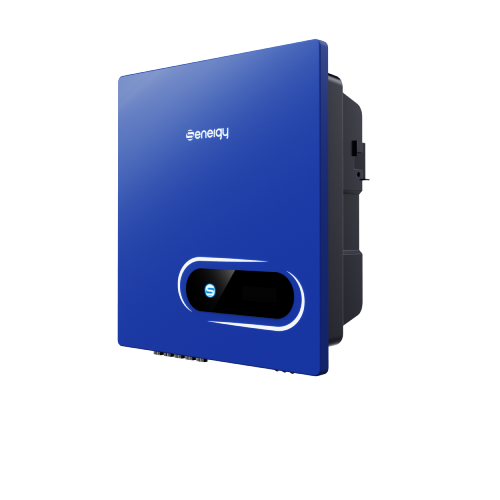Unleashing the Power of Commercial Inverters: A Comprehensive Guide
In today's energy landscape, businesses are increasingly looking for sustainable and cost-effective solutions to power their operations. With the rising demand for renewable energy sources, commercial inverters have emerged as a vital component in converting and managing electricity efficiently. This comprehensive guide aims to shed light on the significance of commercial inverters, their functionalities, and the diverse applications they cater to.

What is a Commercial Inverter?
A commercial inverter is a device that converts direct current (DC) electricity, typically produced by solar panels or batteries, into alternating current (AC) electricity suitable for powering commercial and industrial operations. Unlike residential inverters, commercial inverters are designed to handle larger loads and provide a reliable power supply for businesses.
How do Commercial Inverters Work?
Commercial inverters utilize advanced electronics to transform the DC electricity into AC electricity. The process involves several key steps:
Conversion: The commercial inverter converts the DC power generated by solar panels or batteries into AC power, which is compatible with the electrical grid.
Control and Optimization: Modern commercial inverters incorporate advanced algorithms to optimize the power output, ensuring maximum efficiency and grid stability.
Monitoring and Data Analysis: Commercial inverters often feature monitoring systems that provide real-time data on energy production, consumption, and system performance. This data can be used to identify potential issues, optimize energy usage, and improve overall system performance.
Key Features and Benefits of Commercial Inverters
Commercial inverters offer a range of features and benefits that make them an ideal choice for businesses. Here are some notable advantages:
High Efficiency: Commercial inverters are designed to maximize energy conversion efficiency, allowing businesses to make the most of their renewable energy sources.
Scalability: These inverters can accommodate larger loads and can be easily scaled up to meet the growing energy demands of businesses.
Grid-Tied Operation: Commercial inverters enable businesses to connect their renewable energy systems to the electrical grid. This allows excess power to be fed back into the grid, potentially offsetting energy costs or generating revenue through net metering programs.
Remote Monitoring and Control: Many commercial inverters come equipped with monitoring and control systems that enable remote access and management of the system. This feature enhances operational efficiency and simplifies maintenance.
Durability and Reliability: Commercial inverters are built to withstand demanding commercial and industrial environments, ensuring long-term reliability and reduced downtime.
Applications of Commercial Inverters
Commercial inverters find diverse applications across various industries. Here are some common use cases:
Commercial Buildings: Commercial inverters are widely used in office buildings, shopping centers, and other commercial spaces to power lighting, HVAC systems, elevators, and other electrical loads.
Manufacturing Facilities: In manufacturing settings, commercial inverters are employed to power machinery, conveyor systems, and other industrial equipment.
Data Centers: Data centers require a stable and reliable power supply. Commercial inverters play a crucial role in ensuring uninterrupted power to critical systems and preventing data loss or downtime.
Farms and Agricultural Facilities: Commercial inverters are utilized in the agricultural sector to power irrigation systems, barns, and other farm equipment, enabling farmers to leverage renewable energy sources and reduce operational costs.
FAQs about Commercial Inverters
Q1: Can a commercial inverter work with multiple energy sources?
A1: Yes, many commercial inverters are designed to work with multiple energy sources, such as solar panels, batteries, and wind turbines, allowing businesses to leverage a mix of renewable energy technologies.
Q2: How long do commercial inverters typically last?
A2: The lifespan of commercial inverters can vary depending on various factors, including the quality of the equipment, maintenance practices, and operating conditions. However, most commercial inverters are designed to last 10 to 20 years.
Q3: Can commercial inverters operate off-grid?
A3: While commercial inverters are primarily designed for grid-tied operation, some models also support off-grid applications. These inverters typically integrate battery storage systems to provide power during periods of low or no grid availability.
Commercial inverters play a vital role in the energy infrastructure of businesses, enabling efficient conversion and management of renewable energy sources. With their high efficiency, scalability, and reliability, commercial inverters are poised to revolutionize the way businesses harness and utilize electricity. By embracing commercial inverters, businesses can reduce their carbon footprint, lower energy costs, and contribute to a sustainable future.
Remember, commercial inverters are a versatile and powerful tool that businesses can leverage to enhance their energy efficiency and sustainability. Whether you're a manufacturing facility, a data center, or a commercial building, commercial inverters can help you unlock the full potential of renewable energy and drive your business forward.

Comments
0